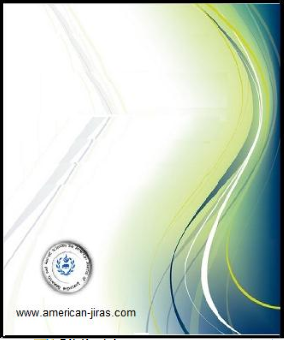
GENERAL INFORMATION
| HOME | ABOUT US | ARCHIVE | AIMS AND SCOP | AUTHORS | REVIEW | SUMIBMIT MANUSCRIPT | EDITORIAL BOARED | PUBLICATION FEE |

| HOME || ABOUT US || ARCHIVES || AIMS AND SCOP || AUTHORS || REVIEW|| SUBMIT MANUSCRIPT || EDITORIAL BOARD |

| Info-AJIRAS-® Journal ISSN 2429-5396 (Online) / Reference CIF/15/0289M |
American Journal of Innovative Research & Applied Sciences

|
American Journal of innovative
Research & Applied Sciences
Research & Applied Sciences
ISSN 2429-5396 (Online)
OCLC Number: 920041286
OCLC Number: 920041286

Authors Contact
*Correspondant author and authors Copyright © 2023:
| Ahadbek KHAYDAROV |
Affiliation.
Ministry of Economy and finance of the Republic of Uzbekistan | Tashkent | Uzbekistan |
This article is made freely available as part of this journal's Open Access:
| DOI: 10.5281/zenodo.10247223 |
*Correspondant author and authors Copyright © 2023:
| Ahadbek KHAYDAROV |
Affiliation.
Ministry of Economy and finance of the Republic of Uzbekistan | Tashkent | Uzbekistan |
This article is made freely available as part of this journal's Open Access:
| DOI: 10.5281/zenodo.10247223 |



| ISSN: 2429-5396 (e) | https://www.american-jiras.com | |
| Web Site Form: v 0.1.05 | JF 22 Cours, Wellington le Clairval, Lillebonne | France |
| Web Site Form: v 0.1.05 | JF 22 Cours, Wellington le Clairval, Lillebonne | France |
| DECEMBER | VOLUME 17 | ISSUE N° 6 | 2023 |
| ARTICLES | Am. J. innov. res. appl. sci. Volume 17, Issue - 6 Pages 16-22 (December, 2023)
ABSTRACT
Introduction: Uzbekistan is pursuing a transition to a green economy to address pressing environmental challenges. Green budgeting has emerged as a key fiscal policy tool to support sustainable development. Objective: This review synthesizes evidence on the prerequisites, features, and principles of green budgeting in Uzbekistan. Methods: A systematic literature search was conducted across major databases to identify studies published from 2010-2022 focused on green economy and budgeting issues in Uzbekistan. Key data was extracted and synthesized narratively. Results: Uzbekistan has adopted a Green Economy Strategy to 2030, but progress is constrained by energy inefficiency, resource overuse, technology gaps, and limited private sector involvement. Global best practices highlight green budget tagging, eco-taxes, sustainable procurement, and green debt financing. Uzbekistan is piloting climate budget tagging and should expand to full green budgeting. This requires green assessments of all programs, integrating objectives into planning, performance tracking, and result publication. Conclusion: Effective green budgeting implementation necessitates specialized institutions, expertise, and cross-government policy alignment. Focusing on resource efficiency, social-environmental metrics, green job creation, and investment attractiveness can catalyze Uzbekistan's green transition. Coordinated regulatory and fiscal policies are essential.
Keywords: budget, green economy, climate, tagging, Paris Agreement, OECD, low-carbon development, resource conservation, green budgeting, Sustainable development goals.
Introduction: Uzbekistan is pursuing a transition to a green economy to address pressing environmental challenges. Green budgeting has emerged as a key fiscal policy tool to support sustainable development. Objective: This review synthesizes evidence on the prerequisites, features, and principles of green budgeting in Uzbekistan. Methods: A systematic literature search was conducted across major databases to identify studies published from 2010-2022 focused on green economy and budgeting issues in Uzbekistan. Key data was extracted and synthesized narratively. Results: Uzbekistan has adopted a Green Economy Strategy to 2030, but progress is constrained by energy inefficiency, resource overuse, technology gaps, and limited private sector involvement. Global best practices highlight green budget tagging, eco-taxes, sustainable procurement, and green debt financing. Uzbekistan is piloting climate budget tagging and should expand to full green budgeting. This requires green assessments of all programs, integrating objectives into planning, performance tracking, and result publication. Conclusion: Effective green budgeting implementation necessitates specialized institutions, expertise, and cross-government policy alignment. Focusing on resource efficiency, social-environmental metrics, green job creation, and investment attractiveness can catalyze Uzbekistan's green transition. Coordinated regulatory and fiscal policies are essential.
Keywords: budget, green economy, climate, tagging, Paris Agreement, OECD, low-carbon development, resource conservation, green budgeting, Sustainable development goals.
PREREQUISITES AND FEATURES OF TRANSITION OF THE REPUBLIC OF UZBEKISTAN TO A "GREEN" ECONOMY AND THE PRINCIPLES OF "GREEN" BUDGETING
| Ahadbek KHAYDAROV |. Am. J. innov. res. appl. sci. 2023; 17(6):16-22. doi: 10.5281/zenodo.10247223
| PDF FULL TEXT | | XML FILE | | https://doi.org/10.5281/zenodo.10247223 |
| Ahadbek KHAYDAROV |. Am. J. innov. res. appl. sci. 2023; 17(6):16-22. doi: 10.5281/zenodo.10247223
| PDF FULL TEXT | | XML FILE | | https://doi.org/10.5281/zenodo.10247223 |